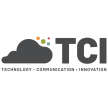5 Cloud Security Best Practices For Small Businesses
Cloud Security Best Practices

As small businesses increasingly move their operations to the cloud, cloud security systems are essential to ensure data privacy and prevent cyber-attacks. Unfortunately, cybercriminals keep innovating new technologies to overcome security measures, making data breaches a prevalent threat to small businesses that apply cloud-based solutions. However, small businesses can still deploy low-cost and reliable cloud-based security solutions to protect their data. Here are five cloud security best practices for small businesses to implement.
1. Choose a reliable cloud service provider
Choosing a reliable cloud service provider with a proven track record is essential for securing data in the cloud. The provider should be reputable, and their cloud security systems should be up to date with the latest technologies. To assess a provider's capability, small businesses should ensure that their provider has implemented the following best practices:
Data encryption: The cloud provider should encrypt data at rest and during transit. This means that even if hackers intercept the data while in transit or access it while stored, it will be unreadable without the encryption key.
Data backup and disaster recovery plans: In the event of a data breach or natural disaster, the cloud service provider should take measures to recover lost data. Small businesses should evaluate how frequently the provider backs up data and how fast they can recover lost data.
Access controls: The provider should have a stringent access control policy to ensure that only authorized personnel can access sensitive data. Small businesses should also confirm that the provider has the necessary protocols and strategies to protect against insider threats.
2. Implement Multi-Factor Authentication
Implementing Multi-Factor Authentication (MFA) is a simple but effective way of securing cloud applications. With MFA, small businesses can secure their cloud applications with an additional layer of security over the standard password authentication method. This way, even if hackers gain access to an employee's login credentials, they will be unable to gain entry since the MFA requires an additional form of identification.
Small businesses can deploy various forms of MFA, including:
- SMS-based authentication
- One-time password
- Soft-token validation
- Biometric authentication
To improve the chances of successful MFA implementation, small businesses should avoid deploying complex MFA systems that can distract employees from their primary responsibilities.
3. Use Wireless locks security system
The deployment of wireless locks security systems is a physical security system that limits unauthorized access to physical data centers. The security systems limit access to authorized personnel only, preventing malicious actors from accessing data. Wireless locks security systems use smart cards, biometric data, and passwords for verification, making them highly secure. Small businesses should consider deploying a wireless locks security system from TCI security services.
TCI security services provide an integrated physical security solution, including access control, video surveillance, and intrusion detection. Their wireless lock systems allow small businesses to manage access control remotely, reducing the need for physical security personnel.
4. Encourage Cybersecurity awareness and training
Most data breaches occur due to employee mistakes or insufficient training. Small businesses should, therefore, invest in employee training to ensure that they are aware of the dangers of cyber threats and take adequate measures to prevent them. Regular training sessions can be conducted to:
- Create awareness of common cybersecurity threats
- Train employees on how to identify phishing scams or social engineering attacks
- Educate employees on how to handle mobile devices and other equipment safely
- Train employees on how to create secure passwords and secure data handling procedures
Investing in cybersecurity awareness will reduce the chances of human error causing data breaches, making the cloud more secure.
5. Monitor and log all cloud activities
Small businesses can improve their cloud security posture by monitoring and logging all cloud activities. This allows them to swiftly detect and address any indications of a data breach, preventing it from escalating into a major issue. Cloud logs provide valuable insights into user activities, system performance, and anomalous data patterns. To make the most of these insights, small businesses should deploy a centralized logging system that logs all activities from a single dashboard.
Logging and monitoring all activities allow small businesses to detect and respond to security incidents early. By deploying machine-driven analyses, businesses can further improve their security posture. These analyses can identify patterns and trigger alerts when they detect any deviation from normal activities, which can help prevent data breaches. Small businesses can maintain an unwavering grip on their cloud security and safeguard their sensitive data from cyber threats by having a formidable logging and monitoring system in place.
Conclusion
Small businesses using cloud-based solutions require cloud security systems to protect their sensitive data. Adopting reliable cloud service providers, multi-factor authentication, wireless locks, cybersecurity training, and cloud activity monitoring can significantly enhance data security. These five best practices enable small businesses to maintain a robust, multilayered security posture and protect their data from cyber threats. While the cost of implementing cloud security may seem daunting, a data breach can be much more expensive. Small businesses must prioritize implementing cloud security solutions and stay up-to-date with the latest trends and best practices.
About the Creator
Kevin Tucker
Kevin Tucker is the CEO of TCI, a leading cloud-based technology provider. He has led TCI to become a trusted partner for cloud security systems and IT solutions to businesses of all sizes in the region.






Comments
There are no comments for this story
Be the first to respond and start the conversation.